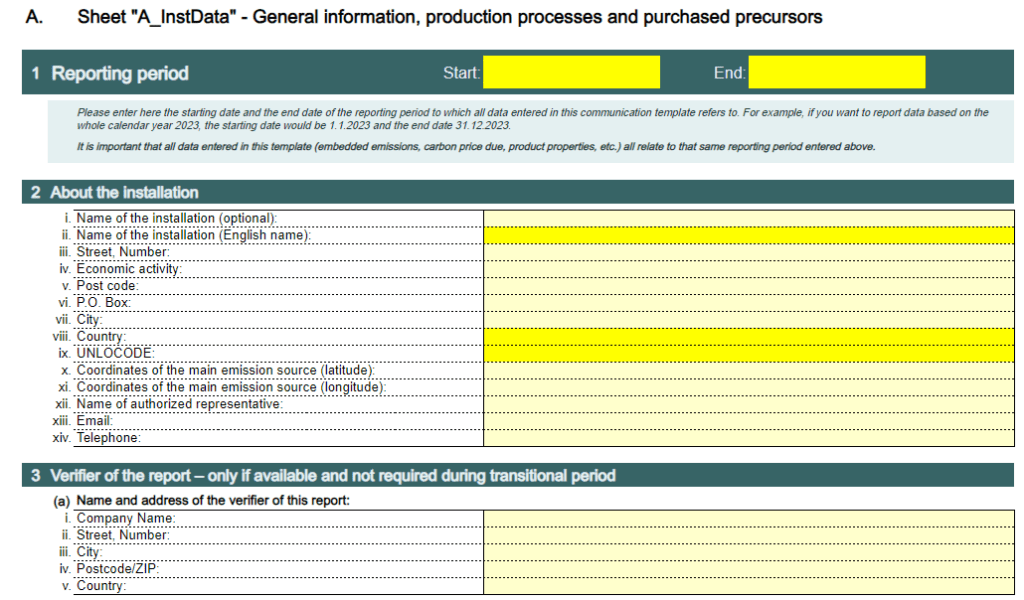Carbon Border Adjustment Mechanism (CBAM) Consulting
what is The carbon border adjustment mechanism (cbam)?
The Carbon Border Adjustment Mechanism (CBAM) is the European Union’s carbon border tax, requiring importers and exporters to report and offset the carbon emissions embedded in certain goods.
It was introduced as part of the European Green Deal to combat carbon leakage and bolster emissions reduction efforts. Its impact extends globally, as international companies must align with EU regulations to maintain access to the EU market.
EU importers must submit product carbon footprint declarations quarterly during the transition period. Starting January 1, 2026, only registered declarants can import CBAM goods.
Gain a clear understanding of your cbam reporting requirements
Tetra Tech’s CBAM consultants can help your team achieve compliance, protecting your market access and brand reputation. Our team offers support for both EU and non-EU importers.
- CBAM Declaration Data
Tetra Tech can help you understand your company’s specific customer requirements for CBAM declaration data, including legal requirements to the EU, contractural requirements to your customers, and reporting deadlines, formats, and methodologies.
- CBAM Reporting Requirements
From identifying in-scope CBAM goods to establishing emission monitoring methods, our experts will help you confirm and communicate your clients’ reporting requirements and expectations.
- CBAM Roadmap
Once we have identified your company’s requirements and guided you through one subsequent reporting cycle, we will provide a personalized long-term roadmap for CBAM compliance based on our observance of your company’s unique circumstances and our expertise in forecasting regulatory changes.

Assistance for reporting cbam to your customers
Our support offerings include tailored assistance in gathering declaration data and completing the EU Commission’s CBAM Communications Template, available for download below.
TETRA TECH CBAM Consultants — HERE TO SUPPORT YOU
Tetra Tech has years of expertise in navigating regulatory compliance landscapes. Our seasoned professionals delve into the nuances of each new requirement, saving you time and effort. Contact our CBAM consulting team to discuss data reporting, emission calculations, or compliance preparation strategies for your business.
Expert, On-Call Team
Tetra Tech’s team stays up to date with everything you need to know for CBAM reporting and can answer your questions.
Online Training
Become an expert on CBAM with our professional online training. Coming soon.
Regular Access to Online Resources
Gain access to even more CBAM support with our online blog updates. We strive to give you CBAM insights that make your reporting easier.
Compliance Program Implementation
Assessments
Reporting Management
Online Training
Frequently Asked Questions
The Carbon Border Adjustment Mechanism (CBAM) is the European Union’s first carbon border tax, designed to reduce carbon leakage and support the EU’s broader climate goals. Under CBAM, importers of specific goods, such as steel, aluminum, fertilizer, cement, hydrogen, and electricity, must report the greenhouse gas emissions embedded in their products. This ensures imported goods face the same carbon costs as those manufactured within the EU, creating a level playing field for global trade. For a detailed overview, see What is the Carbon Border Adjustment Mechanism (CBAM)?.
CBAM applies to EU importers that bring covered goods into the European Union, as well as non-EU exporters who supply these materials to EU markets. Covered goods currently include iron and steel, aluminium, cement, fertilisers, hydrogen, and electricity. U.S. exporters, in particular, should prepare to provide verified emissions data to their EU trading partners to avoid delays or loss of market access. Companies across energy-intensive industries, including metals, manufacturing, and fertilizers, will be most affected; however, all suppliers should be aware of the expanding CBAM coverage in future phases. Non-EU Importers can learn more here: Navigating the Carbon Border Adjustment Mechanism (CBAM) for Non-EU Importers.
The CBAM transitional phase runs through the end of 2025. During this time, importers must submit quarterly emissions reports but are not yet required to purchase CBAM certificates. Beginning 1 January 2026, CBAM will enter its permanent phase. Only authorised (registered) CBAM declarants may import covered goods, with limited transitional provisions while registration is being finalised, and importers will be required to purchase CBAM certificates starting in 2027 to cover emissions embedded in 2026 imports.
Importers must collect and report detailed information about the emissions generated during production, including energy use, process emissions, and transportation factors. This data must come from verified sources and align with EU-approved methodologies. Accurate, supplier-level data is critical to avoid discrepancies in carbon calculations or rejected reports. Companies should establish internal systems for tracking, storing, and validating this data to ensure readiness for annual audits and future enforcement. Our article Understanding the Correlation Between Scope 3 Emissions and CBAM explains how data transparency supports compliance.
Yes. Under the Omnibus I Regulation, adopted in September 2025, CBAM includes a 50-tonne annual de minimis threshold per importer for certain goods, including iron and steel, aluminium/aluminum, cement, and fertilisers/fertilizers. The 50-tonne exemption does not apply to hydrogen and electricity, meaning importers of those products must report emissions regardless of quantity.
The new threshold takes effect with the start of the definitive CBAM regime on 1 January 2026, and the first annual CBAM declaration will be due in 2027 for 2026 imports. U.S. exporters should begin preparing verified emissions data now to help their EU customers comply and maintain access to the EU market.
Preparing for CBAM compliance requires a proactive, system-wide approach. Companies should start by identifying in-scope products, gathering verified emissions data from suppliers, and assessing existing reporting systems for gaps. Establishing internal processes now, supported by external guidance, will reduce administrative burden and financial risk when CBAM enforcement begins. Tetra Tech helps organizations develop compliance roadmaps, improve data accuracy, and align CBAM reporting with other sustainability initiatives such as Scope 3 tracking and ESG reporting. Contact us today for more information.




